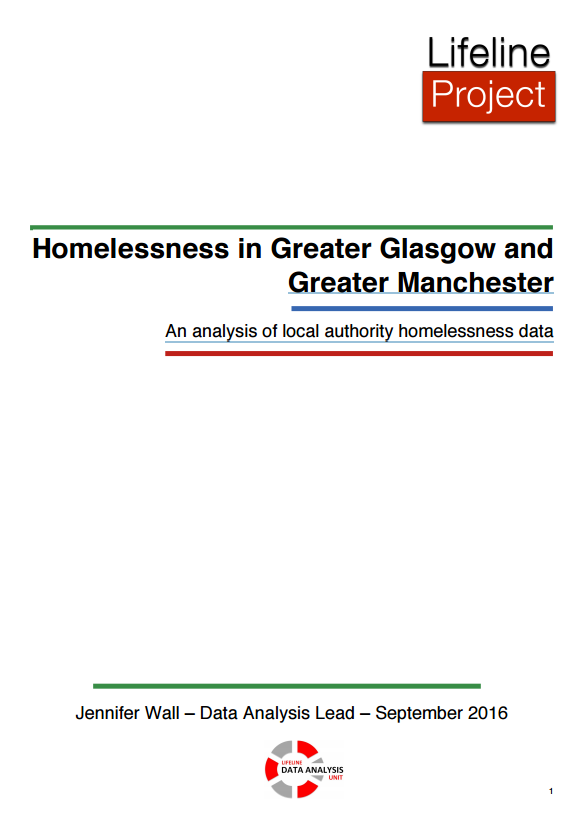This Report, by Lifeline Project, analyses local authority homelessness data in Greater Manchester and ‘Greater Glasgow’ and seeks to understand the applicant population, including  their needs and circumstances, as well as the effect the different English and Scottish policy approaches and legislation have on the lives of those experiencing homelessness, or the threat of it, within these two conurbations.
their needs and circumstances, as well as the effect the different English and Scottish policy approaches and legislation have on the lives of those experiencing homelessness, or the threat of it, within these two conurbations.
Homelessness is ablight on a country as wealthy and progressive as the UK, the victims of it are often the most vulnerable in society and it is increasing at a time when the resources available to respond to it are being stretched by ever stringent local authority budget cuts. Homelessness is inextricably linked to poor physical and mental health and wellbeing, substance misuse, vulnerability and violence. This Report adheres to the view espoused by Crisis (2016) that ‘a home provides roots, identity, a sense of belonging and a place of emotional wellbeing. Homelessness is about the loss of all these’. 
Data regarding homelessness is widely seen as inadequate, the UK Statistics Authority published an assessment of the homelessness data collated by the Department for Communities and Local Government (DCLG) and found that only the ‘statutory homeless figures’ could be considered ‘national statistics’ as the other homelessness related data was not robust enough and potentially misleading. This Report analyses the statutory homelessness figures and the prevention and relief activity data; the analysis is focused on this data only in order to obtain the most accurate picture possible of at least one section of the homeless population.
To read the report, visit: www.lifeline.org.uk/articles/homelessness-data-analysis/